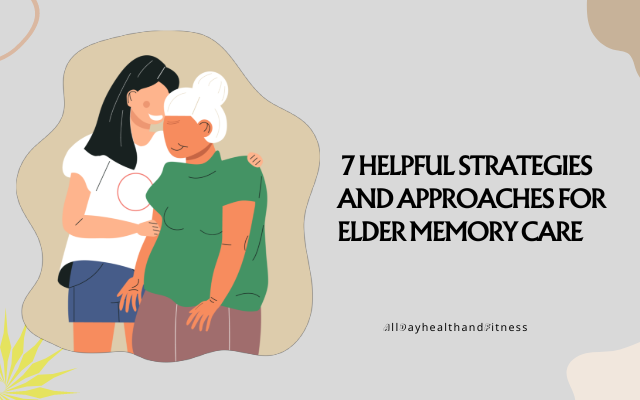10 Warning Signs Your Parents Need Extra Care

As the tapestry of life unfolds, the role reversal between children and parents becomes an inevitable chapter. The realization that our once-invincible parents might need extra care can be both sobering and challenging.
According to the World Health Organization, by 2050, the global population aged 60 and above is expected to reach two billion, underscoring the growing importance of understanding and addressing aging-related concerns.
What subtle whispers is life sending our way, suggesting that the guardians of our youth may need a helping hand now?
As parents age, it is quite natural for children to wonder if they need help. Older adults may need help with personal care, meals transportation, etc. The problem is that they do not allow others to assist them with their day-to-day affairs.
Table of Contents
- 10 Warning Signs Your Parents Need Extra Care
- #1. Unpaid Bills and Unopened Mails
- #2. Difficulty in Walking
- #3. Declined Hygiene And Increased Body Odor
- #4. Change In Diet Plans And Sudden Weight Loss
- #5. Noticeable Change in Mood and Behaviour
- #6. Forgetting or Taking the Wrong Dosage of Medication
- #7. Recent and Frequent Falls
- #8. Memory Loss
- #9. Frequent Scratches and Dents on the Car
- #10. Missing Appointments and Obligations
10 Warning Signs Your Parents Need Extra Care
Here are 10 warning signs your parents need extra care.
#1. Unpaid Bills and Unopened Mails
You may find your parents have stacks of unpaid and unopened mail. This suggests that they have become desynchronized. This also suggests memory loss and you should take this as a warning sign of them needing extra care.
If stacks of unpaid bills and unopened mail are piling up, it might signal a struggle to manage finances. Aging parents may find it challenging to keep track of due dates. Initiate open conversations about financial responsibilities and consider setting up automatic payments to ease the burden.
#2. Difficulty in Walking
Do your parents find it difficult to walk up or down the hallway? Chances are that old age is affecting them adversely. You should always keep an eye out for such signs.
When navigating the hallway becomes a challenge, it’s a red flag. Reduced mobility can impact their independence. Suggest assistive devices like canes or walkers, and explore exercises to improve strength and balance. Regular walks or simple stretches can make a significant difference.
#3. Declined Hygiene And Increased Body Odor
Did you notice that your parents are starting to have a grimy appearance and increased body odor?
If the answer is yes, your parents are facing problems in maintaining personal hygiene. This is another warning sign that suggests they need your help.
A decline in personal hygiene may indicate physical limitations or cognitive decline. Broach the topic with sensitivity, emphasizing the importance of self-care. Introduce aids like shower seats or consider a caregiver to assist with bathing and grooming.
#4. Change In Diet Plans And Sudden Weight Loss

If you find your parents started depending on packaged food, chances are that they are having trouble with cooking. As elders face mobility and vision issues, cooking becomes difficult for them. This leads to sudden and unusual weight loss.
Dependency on packaged food and unexpected weight loss can result from cooking challenges. Collaborate on simple meal plans or explore meal delivery services. It’s an opportunity to bond over cooking or enlist the help of a caregiver for nutritional support.
#5. Noticeable Change in Mood and Behaviour
Are you noticing a sudden change in your parent’s behavior?
Are they getting irritated for no reason or losing interest in something that they previously enjoyed? This indicates mood swings and this suggests they need help.
Sudden mood swings or behavioral shifts may stem from frustration or feeling overwhelmed. Engage in open conversations to understand their concerns. Consider activities that bring joy and enlist companionship to combat feelings of isolation.
Read also: The 7 Most Common Health Concerns Among Seniors And Tips For Managing Them
#6. Forgetting or Taking the Wrong Dosage of Medication
Finding your parents taking the wrong medication or forgetting to take it completely suggests early stages of memory loss. This is another warning sign you should look out for. In this case, make it a habit to check your parent’s medicine box to ensure the correct dosage is consumed.
Medication mishaps are concerning. Implement a system like a pill organizer, or set up reminders on their phones. Regularly check and update their medication list with the healthcare provider. This ensures proper dosage adherence and minimizes risks.
#7. Recent and Frequent Falls

If you start finding frequent bruises on your parents’ arms or legs, it is because they are having frequent falls. This is due to reduced mobility and unclear vision. Keep an eye out for this sign. If you find too many bruises on your parents’ body it’s suggested that you keep a caregiver to help them.
Frequent falls indicate potential hazards. Conduct a home safety assessment, addressing areas prone to slips. Encourage strength-building exercises and, if necessary, consider mobility aids. A caregiver’s assistance can provide an extra layer of security.
#8. Memory Loss
Do you find your parents constantly misplacing things and keeping things where they are not supposed to? This can be the result of memory loss and this suggests that they need proper attention.
Misplacing items due to memory loss is common. Establish routines and designated places for essentials. Involve them in memory-boosting activities like puzzles. If concerns persist, consult a healthcare professional for a comprehensive assessment.
#9. Frequent Scratches and Dents on the Car
If you find your parents’ car getting dented and scratched up frequently, it’s because they are having problems while driving. A caregiver can be appointed in this case to avoid problems on the road.
Car-related mishaps can be a road safety concern. Assess driving capabilities and consider alternatives like transportation services or a caregiver for assistance. It ensures their safety while maintaining a level of independence.
#10. Missing Appointments and Obligations
Missing appointments and meetings arise from forgetfulness. These can be early signs of Alzheimer’s and they reveal that your parents need attention.
Forgetfulness impacting appointments signals cognitive challenges. Implement a centralized calendar system and set reminders. Regularly check in on upcoming events. If the issue persists, consult a healthcare professional for a thorough evaluation.
About The Author:
Brandon Shamis has been a core part of 123homecares he is handling the role of operation head. 123 Home Care is one of the best and most trusted non-medical home care companies we focus on delivering the highest quality of care in the easiest and most convenient way possible.





